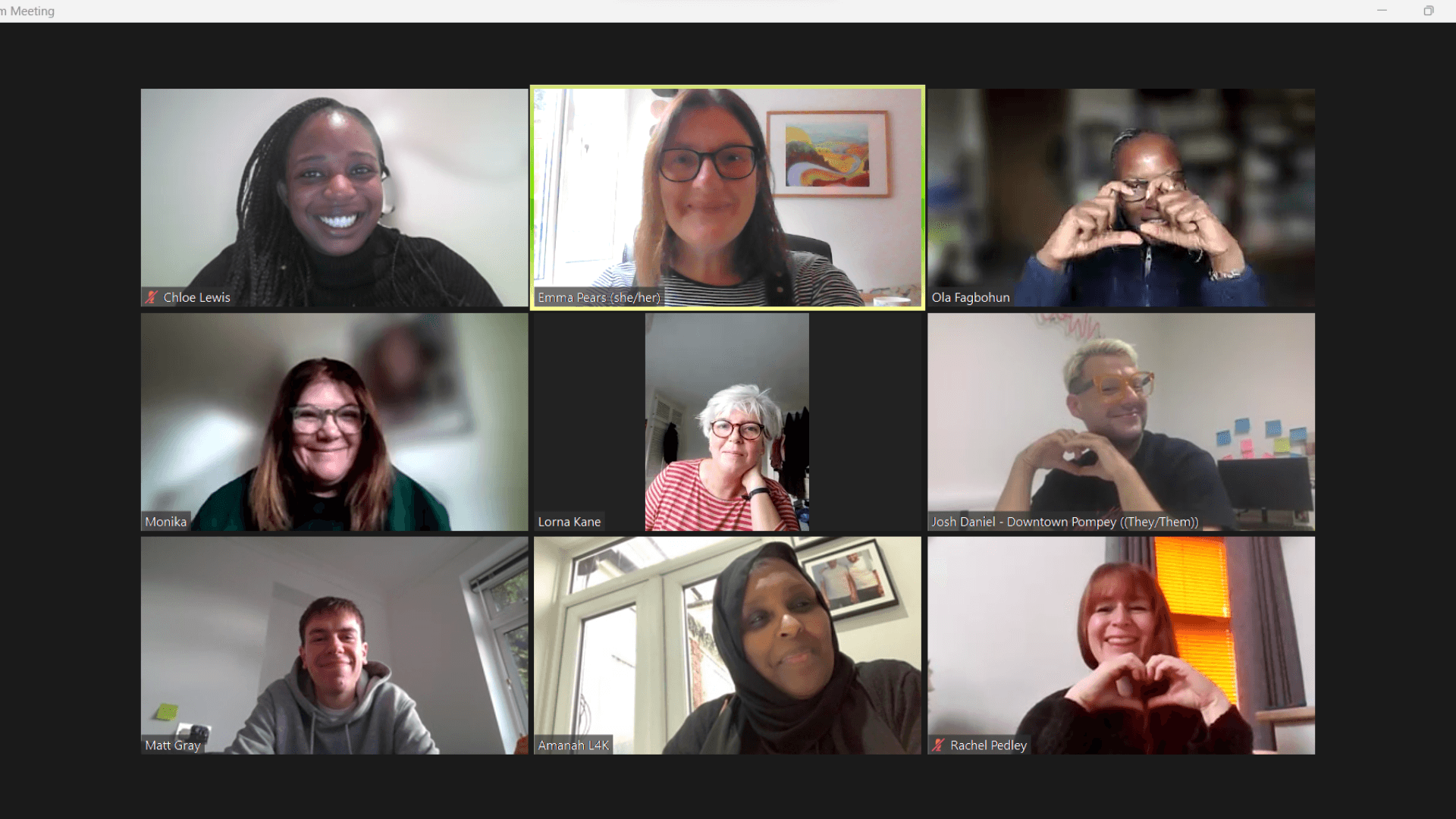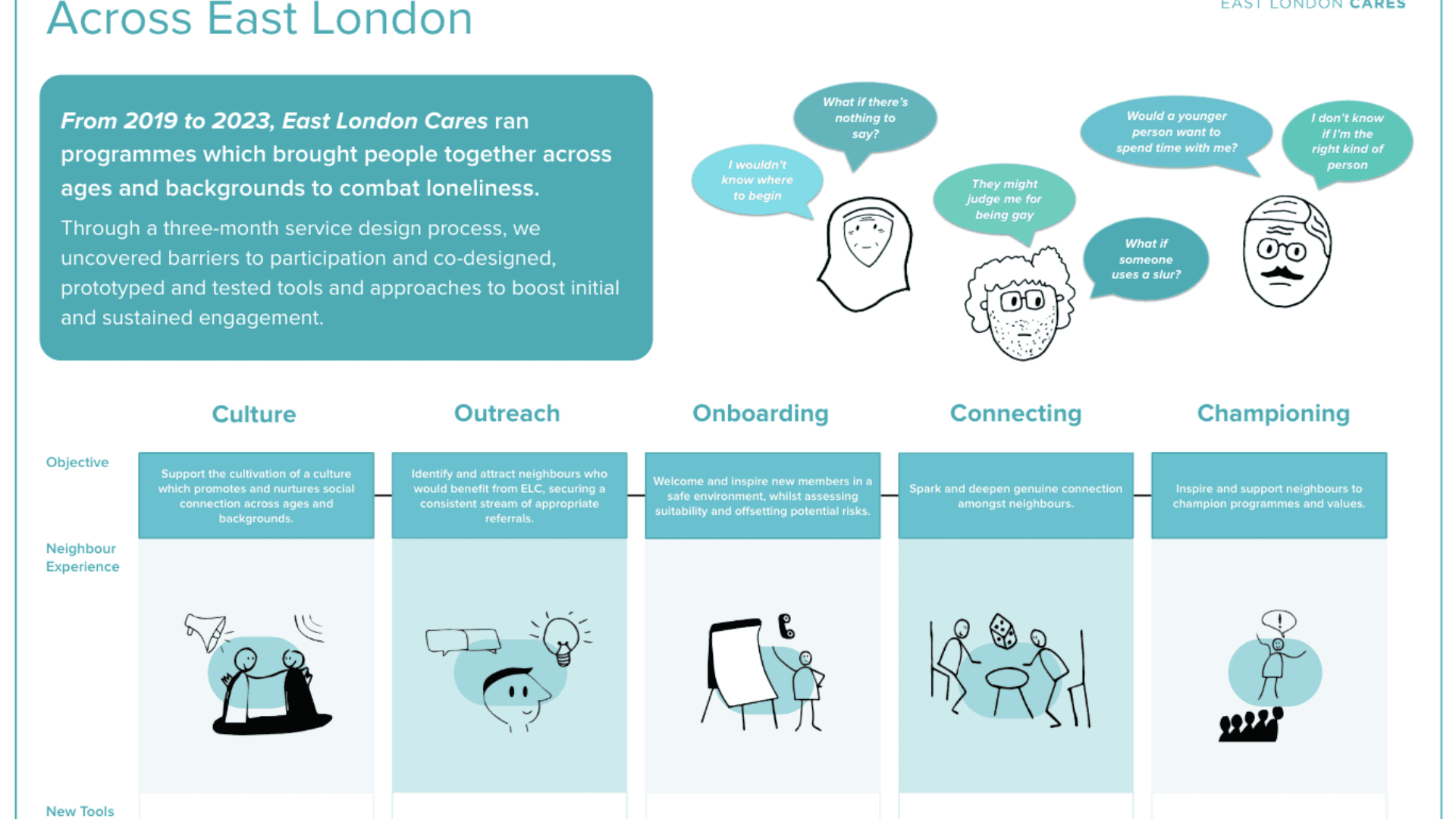
The power of a chain reaction
Posted by The Cares Family on 16th June 2019
Please note: this post is 69 months old and The Cares Family is no longer operational. This post is shared for information only
By Mike Niles
It was a day of firsts recently. I had chicken in black bean sauce and my friend tried dim sum: the first time either of us had tasted those dishes. Both went down a treat. We had decided that, as it was the week of Chinese New Year, we’d go out to celebrate Mitzi’s 70-somethingth birthday by having a meal in London’s Chinatown. A bit extravagant for us; we’re normally satisfied with a cuppa and a biscuit. Not to settle for that on this special occasion, though, we followed our meal with a walk around the West End and enjoyed coffee and cake at a fancy Soho café.
Six and a half years after we first met in north London, it’s always a privilege to spend time with Mitzi when I’m back in the capital. The time we were introduced to one another was memorable. It was the summer of 2012 and London was euphoric following the fantastic Olympic Games. I was in my mid-20s, spending much of my free time enjoying all the city had to offer. But still I felt a sense of disconnection, as a newbie in town, from those people who had spent their entire lives walking these streets.
I was in the pub one afternoon chatting with a friend and she told me about an awesome new community project aiming to bridge that city disconnect. “It’s right up your street”, she said, and she was spot on – figuratively and literally. North London Cares paired me with Mitzi, an older neighbour experiencing periods of social isolation, who lived just a 10-minute walk from my flat. Within a few weeks we were laughing and joking, discussing stories of London through the years and listening to music that we both enjoyed, ranging from Fleetwood Mac to Plan B.
Through the years Mitzi became the bedrock of my London experience. As things changed in my professional and personal life, she was always there to support and advise, and hopefully I was able to do the same for her. My position as ‘charity volunteer’ had evolved into, simply, ‘friend’.
I moved back to my hometown of Doncaster in 2016 and, on observing what was on offer across the town, it was evident that we’d closed the door on older people. And then locked them in. Transport links were cancelled, community centres closed, social venues like pubs struggled to survive and the High Street had diminished, completing its migration online. Former mining villages, tight-knit and full of grit, were now places where neighbours kept to themselves as we all busied about our lives, juggling tasks and leaving little time for socialising.
That’s not necessarily a criticism; it’s just that we’ve removed the opportunities for people to interact. One of life’s small pleasures had always been returning to your car after a shopping trip, having time remaining on your parking ticket and offering your unused time to a fellow parker. “Hi mate, you wanna use this ticket? There’s three hours left on here.” That warm feeling of goodwill as you walked away, slight smile on your face, having saved someone a few quid. Then came automation. Now your licence plate is clocked on camera as you enter and you pay at the machine when you leave – no need to converse with anyone.
Enforced isolation across our communities has a direct impact on people’s health and wellbeing. Loneliness, over long periods, is linked to diagnoses of dementia, depression and coronary disease, to name a few. As technology creeps in to all aspects of our world, spare a thought for those who don’t know how to order an Uber; haven’t got to grips with booking a doctor’s appointment online; or still feel much more comfortable speaking face-to-face with a person, not a machine, when it comes to managing their finances. Their loneliness is compounded as they don’t understand the alternatives.
There are over 22,000 people over-65 living at risk of social isolation in Doncaster alone. A quarter don’t speak to anyone for weeks at a time. But this is not just an issue facing older people. We are all so close to experiencing loneliness – the loss of a job; a family bereavement; a mate moving out of town. Have you ever accidentally gone a full day, working on an assignment or engrossed in a video game, and realised you’ve not spoken to anyone? It’s a weird feeling. Imagine if that happened for a second day, which became a week, and then a month. We crave time to ourselves sometimes but if you were plunged into involuntary isolation, how would you cope with the indefinite, and all-encompassing, feeling of loneliness?
But it’s when faced by challenge that we come together. People across my town decided they were not having it. And so, b:friend was born. Inspired by my personal experience with Mitzi, it’s a charity bringing together older neighbours with local befrienders each week for a cuppa, a chat and confirmation that we’re all in this together. Seems like such an easy thing, right? Popping in for a brew on your way home from work or before your weekly shop. What’s inspired me, though, is that we’ve triggered a chain reaction. Friends saw their friends befriending on Facebook, they in turn signed up to help, and the cycle continued. Now, 300 people are feeling friendship that had been gone too long. Just to know that someone is coming, that someone cares and that there’s an end to the monotonous silence – that is a meaningful connection that can transform a person’s existence.
As our project expands into communities across South Yorkshire, b:friend is part of a wider movement reconnecting isolated neighbours with the people and places around them. In Doncaster, we’ve worked closely with The Cares Family, borrowing templates and policies; re-crafting a model so that it works for our own community.
But even that wider movement is not enough. Across society, it’s time to reintroduce opportunities to interact with people on a day-to-day basis. In our modern world, disconnection exists everywhere. To fix it, everyone needs to make small changes – saying ‘hi’ to someone at the bus stop; chatting to the person in the queue at the supermarket; calling your nan for a talk because, try as you might, she hasn’t quite got the hang of WhatsApp yet.
We can start by sharing a friendship with an older neighbour. That dim sum order meant a lot. I’m honoured that Mitzi chose to spend her birthday lunch with me (and trusted my recommendation) and still find myself revelling in her tales and quirky observations of London life.
It’s reassuring that the government is recognising the widespread nature of the social isolation we face and, while phrases like ‘loneliness epidemic’ will sell newspapers and stir emotions, I’d prefer to focus on our ability, as communities, to bring positivity back into one person’s life, and then another’s, and another’s – and to believe in the power of a chain reaction.
Mike Niles is the Founder of b:friend, a community organisation which started in Doncaster in 2017 and is now expanding to Barnsley, Rotherham and Sheffield.
This article is part of the pamphlet Finding connection in a disconnected age: stories of community in a time of change, published in partnership with Nesta.


